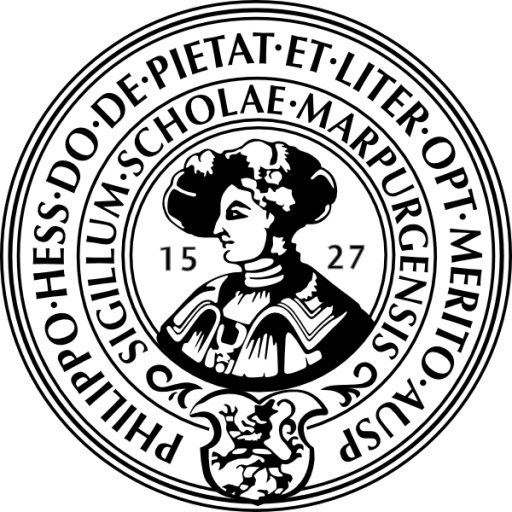Photos of university / #uni_hamburg
The Bachelor's degree programme in Politics, Economics and Philosophy at the University of Hamburg offers a comprehensive interdisciplinary education designed to equip students with a deep understanding of the key issues shaping contemporary society. This programme combines core insights from three distinct but interconnected fields: political science, economics, and philosophy, providing students with a well-rounded perspective on societal structures, decision-making processes, ethical considerations, and economic systems. Throughout the course, students will explore the theoretical foundations and practical applications of political theories, economic models, and philosophical arguments, fostering critical thinking and analytical skills vital for tackling complex global challenges.
The curriculum is structured to promote active engagement with current political and economic issues, encouraging students to analyze and evaluate policy decisions, economic developments, and ethical dilemmas. Courses cover a broad range of topics including international relations, economic policy, political theory, philosophy of science, ethics, and logic. Emphasis is placed on developing the ability to critically assess information, construct well-founded arguments, and communicate ideas effectively. In addition to theoretical coursework, students will have opportunities for practical learning through seminars, workshops, and internships, facilitating a smooth transition into professional environments.
The interdisciplinary nature of the programme allows students to understand the interconnectedness of political, economic, and philosophical dimensions of societal issues. This holistic approach fosters open-mindedness and adaptability, preparing graduates for diverse career paths in public administration, international organizations, think tanks, journalism, consulting, and further academic pursuits. The University of Hamburg’s vibrant academic community and diverse student body provide a stimulating environment for intellectual growth and cross-disciplinary dialogue. Upon successful completion, graduates will have acquired a rigorous analytical toolkit and an ethical perspective that enables them to contribute effectively to policy debates, economic analyses, and philosophical discussions on both national and international levels.
Educational organisation
In the first three semesters students attend disciplinary courses in political science, economics, and philosophy as well as interdisciplinary seminars in economics and political science or philosophy.The fourth semester is devoted to the Master's thesis.
Part-time studies are possible under special circumstances.
Forms of assessment
Written and oral exams as well as essays are possible.Course objectives
Upon successful completion of the MSc programme, students have developed excellent analytical and methodological skills to analyse and solve individual and collective decision problems from an interdisciplinary perspective. On the one hand the programme is designed for students who subsequently intend to enter a PhD programme in one of the three disciplines and who want to pursue an interdisciplinary approach in their research. On the other hand the programme addresses students who want to pursue a career in the public sector, in a private enterprise or in national or international organisations.Language requirements
Proficiency in English, which is demonstrated by obtaining results higher than the quoted levels in one of the following tests:- TOEFL paper-and-pencil-test: 580 points with a score of 4.5 in the essay (TWE score)
- TOEFL internet-based test: 92 points with at least 22 points per skill (Listening, Writing, Speaking, Reading)
- International English Language Testing System (IELTS) - Academics: Band 6.5, Good Competent User, with at least 6.0 per skill
- Cambridge Certificate of Advanced English (CAE): Results A, B, C
- Cambridge Certificate of Proficiency in English (CPE): Results A, B, C
- Cambridge Higher Business English Certificate (BEC): Results A, B, C
Academic requirements
The prerequisite for admission is a first university degree in economics, politics or philosophy from a German or international institute of higher education. Ideally, though not essentially, students with a university degree in one of these disciplines already have some knowledge in one or both of the other disciplines. For application requirements, see: http://www.wiso.uni-hamburg.de/msc-pep.Enrolment fees
There is a semester fee of 310 EUR per semester. This fee includes a semester ticket covering public transport in the Hamburg metropolitan area.Costs of living
We recommend that single students budget at least 800 EUR per month to meet personal expenses (accommodation, living, health insurance, books).Job opportunities
Students who enrol in a full-time programme will generally have only limited time for part-time jobs.As a rule, students who hold an international student visa may work for up to 120 full days or 240 half days per year. Further information on work regulations for international students at Universität Hamburg can be found here: http://www.uni-hamburg.de/piasta/beratung_e.html
Funding opportunities within the university
International full-time students may apply for merit scholarships or exam grants of Universität Hamburg. For more information, please use the provided link. We also recommend contacting our colleagues in the Department of International Affairs for further guidance.http://www.uni-hamburg.de/internationales/studieren-an-der-uhh/finanzierung-des-studiums_e.html
Arrival support
Students and researchers can find information on how to get started in Hamburg on the website of the PIASTA programme at the Universität Hamburg Department of International Affairs (http://www.uni-hamburg.de/piasta_e.html) and on the website of the Hamburg Welcome Center (http://english.welcome.hamburg.de).During the International Welcome Week organised by PIASTA, you will be able to get in touch with all the important institutions and contacts which are particularly useful for international students: http://www.uni-hamburg.de/piasta/veranstaltungen/international-welcome-week_e.html
Services and support for international students
The Universität Hamburg CampusCenter is the first port of call for all current and prospective students and offers information, services, and counselling. The PIASTA programme at the Universität Hamburg Department of International Affairs offers support and advice for German and international students, as well as cultural events and workshops.For more information, refer to: http://www.uni-hamburg.de/piasta and https://www.uni-hamburg.de/en/campuscenter.html
The welcome service of the Universität Hamburg Department of International Affairs is the first contact address for international visiting researchers and others: http://www.uni-hamburg.de/internationales/wissenschaft/service-international_e.html
Accommodation
Accommodation is available through the "Studierendenwerk" (students' services) or on the private market. The "Studierendenwerk" provides rooms in halls of residence, most of which are single rooms with shared kitchens and showers/WCs. We strongly advise students and researchers to arrange accommodation prior to arriving in Hamburg, as demand for affordable accommodation is sometimes larger than supply.For more information on how to find accommodation and how to plan your first steps in Hamburg, please refer to: https://www.uni-hamburg.de/piasta/beratung/doc/willkommen.pdf









